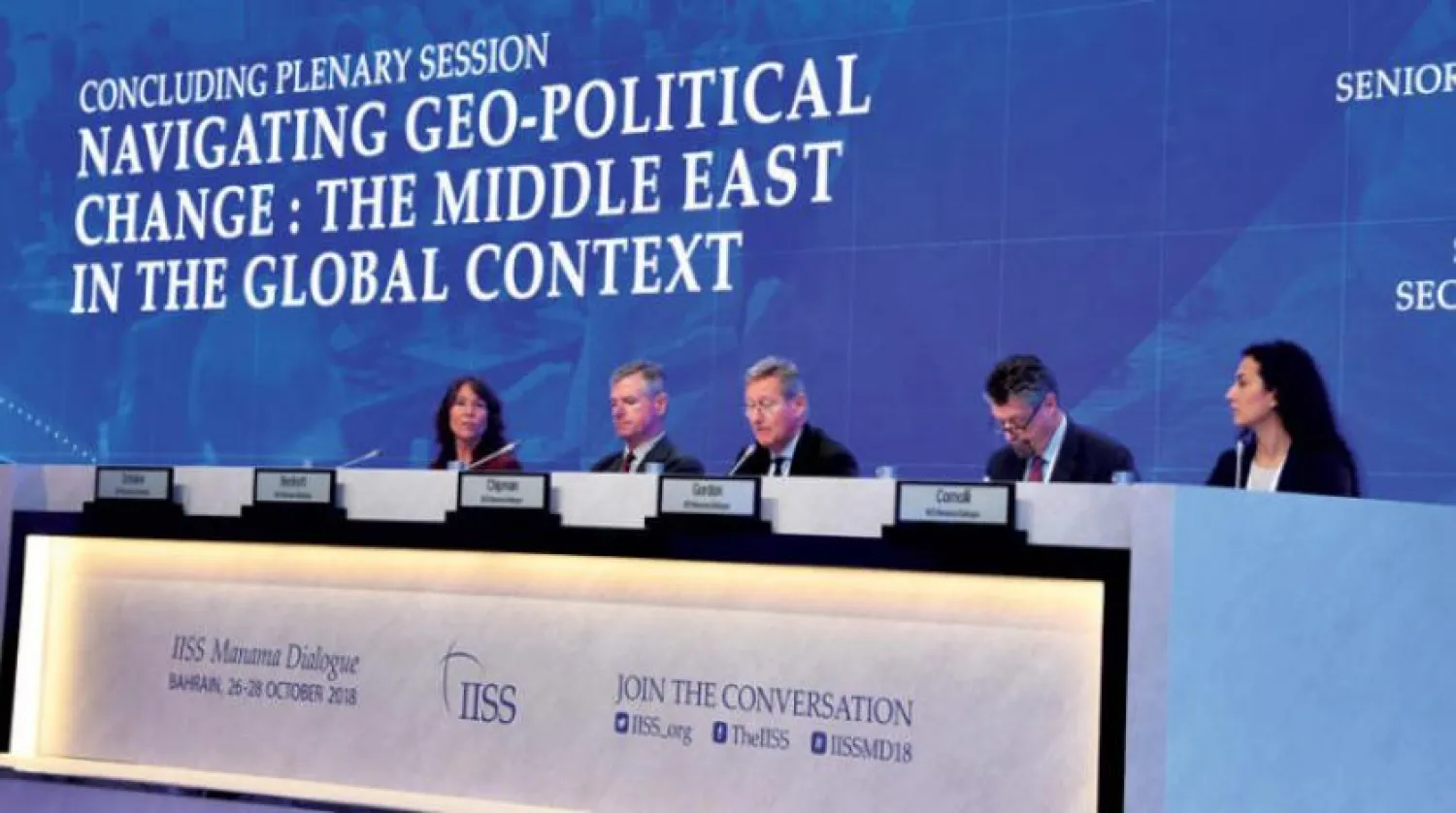Security and stability in the Middle East, the war on terrorism and establishing alliances that enable countries of the region to confront it, were among most important issues addressed by the 14th International Institute for Strategic Studies (IISS) Manama Dialogue.
Through the sessions and discussions, the Forum stressed the importance of maintaining the security of Bab al-Mandeb Strait for the region and the world.
About 12 percent of the international trade passes annually through the Strait.
Manama Dialogue also highlighted the important role of the Horn of Africa for the Middle East and the Gulf region in particular, as an important source of natural resources, and a region for investment opportunities and building strategic, security and political partnerships.
In the closing session held Sunday evening, participants discussed the Palestinian-Israeli conflict as the basis of the problems in the Middle East, where they considered ending this conflict would eliminate all forces of extremism and terrorism in the region.
IISS Senior Adviser for Geo-Economics and Strategy, David Gordon, discussed three topics during his speech: relations between the Middle East and the People's Republic of China, Chinese-US Relations, and the evolution of China's Silk Road strategy.
During the "Security and Competitiveness in the Horn of Africa" meeting, Senior IISS Fellow for Conflict, Security and Development, Virginia Comolli, confirmed that the Manama Dialogue in its latest version offered great opportunities to explore new horizons in the African continent.
She also pointed out that there are strong relations between the Gulf Arab countries and the African continent, which extend to include trade relations.
Comolli also praised the Peace Agreement between Ethiopia and Eritrea after years of conflict, noting that, through its efforts, Saudi Arabia played a major role in achieving peace.
The African Union remains a very strong institution and the relations between the Horn of Africa and the Gulf States are flourishing, asserted Comolli.
For his part, Executive Director of IISS–Middle East, retired Lieutenant General Sir Thomas Beckett, said that terrorism is one of the challenges facing the region, so alliances must be formed to address it.
He explained that US policy focuses on ensuring the defeat of ISIS terrorist organization, in addition to the withdrawal of Iranian-led forces from Syrian territory.
Beckett also asserted the need to activate reconstruction as a tool to reduce conflicts and restore stability to the Syrian people.
IISS Deputy Director-General Kori Schake explained that the Middle East is a sensitive area that is completely different from the rest of the world and needs to be dealt with in a different way.
She added that through the discussions in the Manama dialogue sessions, the Palestinian issue has been strongly reintroduced to the core of the discussions, lauding the positive dialogues included in the Manama Dialogue.









